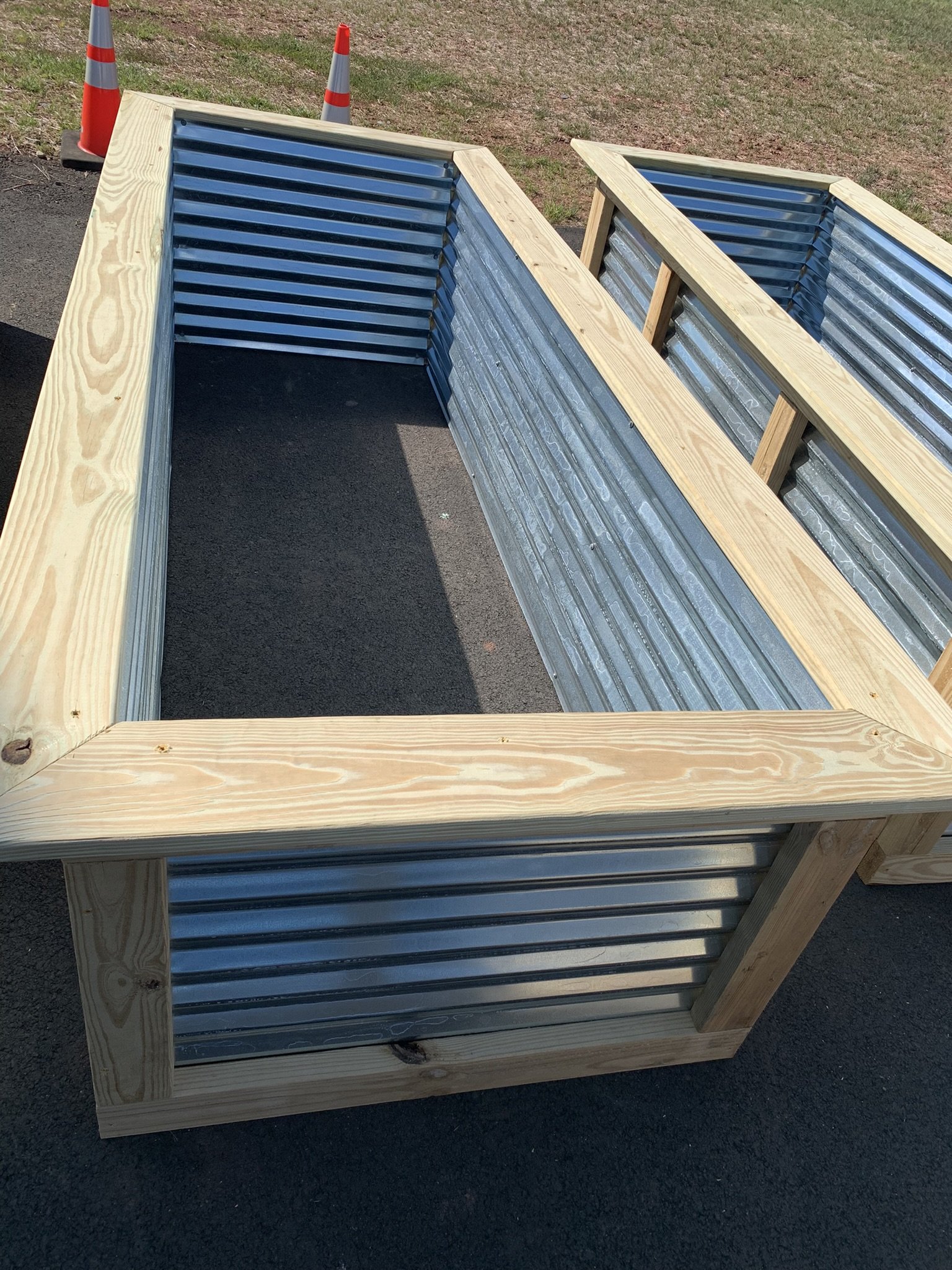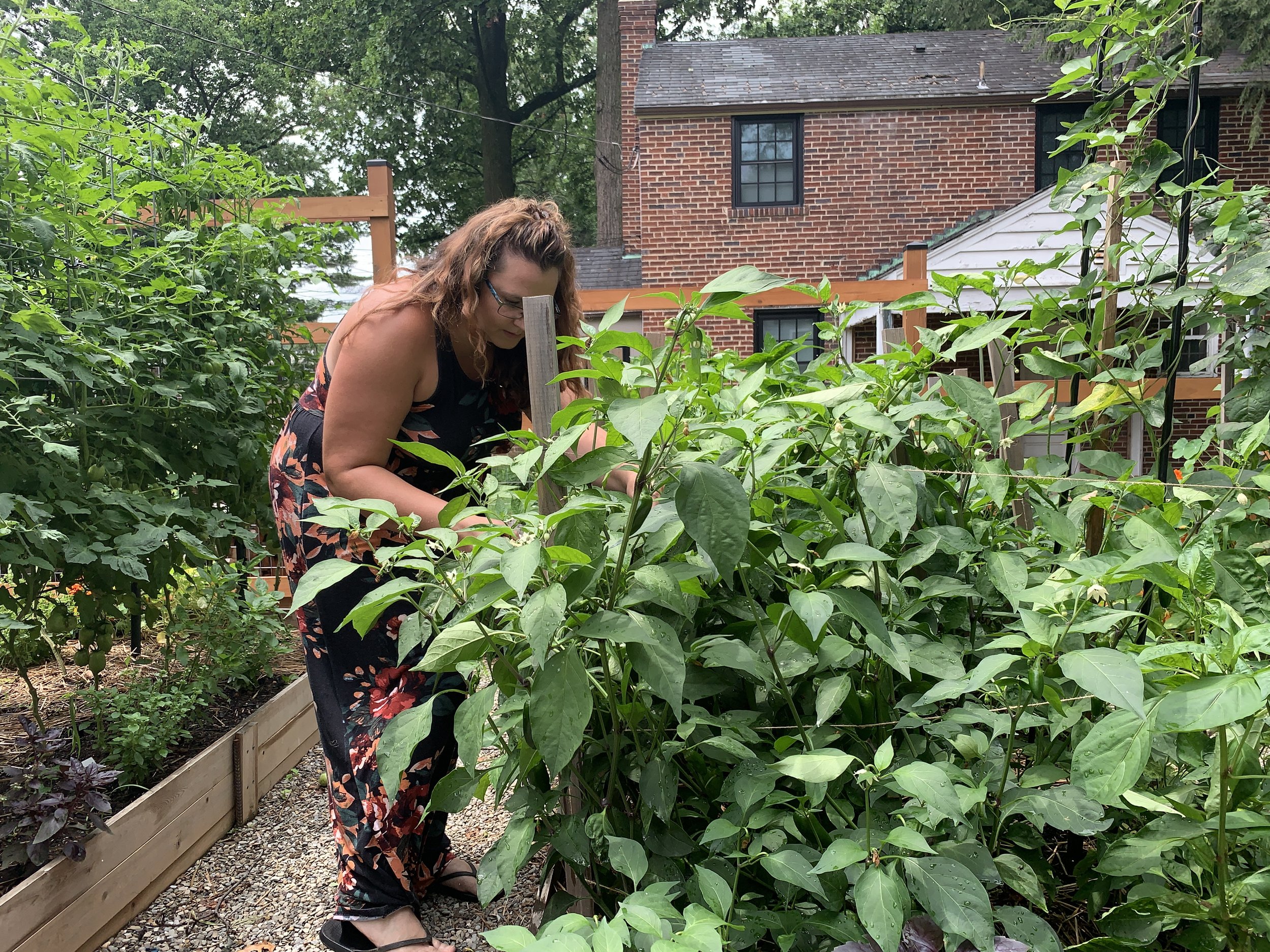Why Raised Beds Are Perfect for Nutrient-Dense Gardening
When I first started gardening, my early attempts were met with failure. No matter how much effort I put into managing weeds and ensuring my plants got enough water, my garden seemed to fall short. It wasn’t until I built my first raised bed with the proper soil mixture (check out the last blog for the special recipe!) that I truly experienced success. Raised beds took me from frustration to flourishing, and I’m confident they can do the same for you.
Raised garden beds are a game changer for anyone looking to grow a nutrient-dense garden. These accessible structures not only make gardening easier and more enjoyable, but they also offer a wealth of practical and aesthetic benefits. Whether you're a seasoned gardener or a beginner, raised beds can help you maximize your yields while minimizing challenges.
Why Raised Beds Are a Game-Changer for Gardening Success
Sometimes it’s to save our backs, other times it’s to match our curb appeal. The reasons people choose raised beds have a range. But they always seem to cover both without trying making them a practical and aesthetic solution for any gardener. Let's dive into the reasons why they are perfect for growing nutrient-dense food.
Fresh Start with Soil Control
One of the most significant benefits of raised beds is that they give you the ability to start fresh with your soil. In traditional gardening, you’re often limited by the quality of your existing soil and in Northern Virginia we all know it’s red clay! But it can also be filled with pests, have poor drainage, or even poor fertility. Raised beds allow you to choose and control the soil, creating a healthy, nutrient-rich environment for your plants.
For example, when I first built my raised beds, I didn’t get it right the first time. I didn’t know the difference between dirt and soil. Well let me tell you it’s life! Life is the difference. Once I realized that and created my raised bed mix of organic soil, high quality compost, and coarse sand It completely transformed the way my plants grew. With the right soil mixture, I was able to ensure my vegetables received the nutrients they needed to thrive. This level of control over your soil is key when it comes to growing nutrient-dense crops that are packed with vitamins, minerals, and flavor.
Ideal Temperature and Extended Growing Seasons
Another fantastic benefit of raised beds is temperature control. Because the soil in raised beds warms up more quickly than in-ground soil, you can plant earlier in the spring and extend your growing season well into the fall. This is especially useful for growing crops that require warmer soil, like tomatoes, peppers, and melons. You can get a jump start on them. And if you live inside the beltway your time can be even earlier!
I remember the first year I built my raised beds, I was able to plant my vegetables a full two weeks earlier than I could in an in-ground garden. That extra time in the growing season made all the difference, and I harvested larger, healthier crops. By taking advantage of the extended growing seasons, raised beds allow gardeners to get the most out of their plants and maximize the production of nutrient-dense food.
Excellent Drainage for Healthier Roots
Nearly all edible plants dislike soggy roots, and when you plant directly into the ground, your plants may occasionally face drainage problems. In contrast, raised beds have superior drainage. The soil in raised beds drains quickly, even after heavy rains, reducing the risk of root rot and ensuring your plants stay healthy.
Plants with proper drainage are better equipped to absorb the nutrients they need. This is crucial when growing nutrient-dense food, as poorly-drained soil can lead to nutrient imbalances and unhealthy plants. The quick drainage in raised beds allows for more consistent moisture levels, promoting healthier root systems and more robust growth.
Fresh, High-Quality Soil for Maximum Nutrition
To grow nutrient-dense crops, the soil must be rich in organic matter. It’s the key to success! A raised bed gives you the perfect opportunity to fill it with fresh, high-quality compost and organic soil. I always tell my clients that soil isn’t the place to cut corners. Poor soil leads to poor results.
By investing in quality materials for your raised beds, you can ensure that your plants get the nutrients they need from the start. For nutrient-dense gardening, I recommend a mix of compost, topsoil, and organic matter like leaf mulch or aged manure. This combination provides the perfect balance of nutrients, structure, and drainage. If you fill your raised bed with subpar soil, you’ll be limiting your plants' potential and ultimately, their nutrient content.
Comfort and Ease of Gardening
Let’s not forget about the comfort factor. Gardening, especially in-ground gardening, can be a dirty, uncomfortable experience, especially if you're bending and kneeling for long periods. No one’s backs have time for that! Raised beds solve this problem by elevating your planting area, making gardening easier on your body.
My raised beds are about knee height, so I can tend to my plants without bending over constantly. The height of raised beds is another key benefit. Not only does the height make gardening easier on the body, but it also makes the process more inclusive. Raised beds are perfect for children, as they can easily tend to their own section of the garden without worrying about stepping on something or falling. Additionally, older adults or those with mobility challenges can comfortably garden without the strain of bending or kneeling.
The elevated height also minimizes the chances of pest damage from soil-dwelling insects, making it easier to maintain a healthy, productive garden. This added comfort and accessibility encourage more frequent gardening, which ultimately leads to a more successful and enjoyable growing experience.
This makes gardening more enjoyable and sustainable in the long run. For anyone with mobility issues, raised beds are a great solution that makes gardening more accessible. And honestly accessibility to the garden is so important for our mental health. More on that in another blog though.
Principles to Keep in Mind When Building Raised Beds
When planning your raised beds, it's important to consider their size, shape, and materials.
1. Size and Shape: The ideal width for a raised bed is about 1.5 feet to 4 feet wide. Anything wider than that makes it difficult to tend to your plants without leaning over uncomfortably. Your arms are only so long! For length, 8 feet is standard and economical, but anything longer than 10-12 feet may require additional bracing to prevent the sides from bowing.
2. Height: A minimum height of 12 inches is necessary for raised beds and proper root development for most plants, but for optimal results, I recommend a height of 18 inches to 2 feet. This allows for deep-rooted plants like tomatoes, carrots, and peppers to grow comfortably and access the nutrients they need.
3. Materials: Choose materials that are durable,sustainable, and safe. Avoid pressure-treated wood or metal that could leach harmful chemicals into the soil. There are many alternatives out there for metal beds and some beautiful woods. Just do your research. Stone, brick, and untreated wood are excellent choices. You can even use recycled materials, as long as they are safe for growing food.
The Bottom Line: Raised Beds Are the Key to Nutrient-Dense Gardening
When it comes to growing nutrient-dense food, raised beds offer the perfect solution. They give you complete control over your soil, provide better drainage, and create an ideal environment for your plants to thrive. Not only do they make gardening more enjoyable, but they also ensure that your crops are as healthy and nutrient-rich as possible.
If you’re ready to take your garden to the next level, raised beds are a great place to start. They can transform your gardening experience, leading to better yields and a more productive, nutrient-dense garden. Don’t wait—start planning your raised beds today and enjoy the benefits of a thriving, bountiful garden!





